Home Remedies For Loose Teeth: 9 Effective Treatments To Try
Simple tips and tricks to boost sum and teeth health easily at home.

Image: Shutterstock
Loose teeth in adults are a sign of poor dental hygiene or oral diseases. Loose teeth make it difficult to chew your food properly, and leaving them untreated can lead to the surrounding tissues becoming red and swollen. Understanding the common causes of loose teeth, such as gum disease, trauma, and underlying medical conditions, can help you choose an effective treatment method. To save yourself from all that discomfort, you can try several home remedies and follow a dental diet for loose teeth to alleviate the symptoms and provide relief. In this article, we deeply explore the several causes of loose teeth and home remedies one could try to keep the symptoms of loose teeth under control. Scroll down for more information.
In This Article
What Causes Your Teeth To Become Loose?
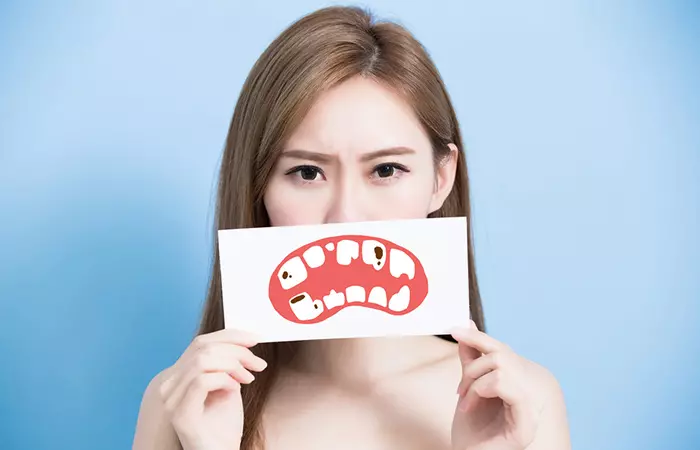
For many, loose tooth issues arise from gum problems and bone loss (1). It happens when periodontitis, an infection, destroys the bone and soft tissues supporting the teeth. Other reasons for toothache, shaky and loose teeth include (2) :
- Poor oral hygiene
- Gum disease with plaque
- Dental injuries or fractures
- Tooth decay from sugary foods (2)
 Quick Tip
Quick Tip- Osteoporosisi A condition in which declining bone mass prevents the regeneration of new bones to replace old ones and makes them prone to fracture. (3)

A study conducted on 471,107 US adults found that 30% lost one to five teeth, 10% lost six or more, and 5% lost all teeth respectively. Further, adults with copd were 14% more likely to have lost one to five teeth while 81% more likely to have lost six or more teeth respectively.
Dr. Jumoke Adedoyin, DDS, says, “Loose teeth in adults can be a concerning symptom, often indicating an underlying health problem. In most adults, the culprit is typically gum disease, specifically periodontitis, where the gums pull away from the teeth, causing them to become unstable. Pregnant women are particularly susceptible to gum disease due to hormonal changes, which is why dentists emphasize the importance of oral health during this time.”
Although it is alarming, this dental medical condition is reversible. Let’s look at a few home remedies and dental herbs to set the wobbly tooth straight and make it strong.
Key Takeaways
- There are various home remedies that can help strengthen loose teeth, including oil pulling, garlic, and amla powder.
- Brushing twice a day, flossing your teeth, and following the right dental nutrition regularly is important if you want to avoid gum disease and maintain strong teeth.
- Consult your doctor if you have concerns about loose teeth for a proper check-up and advice on the best course of action.
- Avoiding sugary foods and quitting smoking can aid in improving your oral health and preventing gum disease.
Home Remedies For Loose Teeth
- Oil Pulling
- Amla Powder
- Calcium And Vitamin D Supplements
- Garlic
- Hydrogen Peroxide
- Mustard Oil And Honey
- Indian Redwood Bark Powder
- Turmeric And Long Pepper
- Baking Soda
1. Oil Pulling
The process of oil pulling or swishing the dental oil around in your mouth can help eliminate impurities by killing harmful microbes residing in the mouth. It can help maintain good oral hygiene and eliminate plaque (4). This may help fix loose teeth.
You Will Need
1 tablespoon virgin coconut oil (or sesame or olive oil)
What You Have To Do
- Before brushing your teeth in the morning, swish the oil around in your mouth for 15-20 minutes.
- Spit the oil out and rinse your mouth thoroughly with warm water.
- Brush your teeth as usual.
How Often You Should Do This
Repeat this every morning. You can also do it once again before going to bed.
A vlogger tried the oil-pulling method and shared his experience in one of his vlogs: “I’ve actually had a problem with bad breath for a long time because I drink coffee on a daily basis. And I used to brush a lot. I used to drink a lot of water, but now I’m just doing this oil-pulling technique. It has reduced the bad breath by quite a lot, and it smells much better than before (i).”
2. Amla Powder
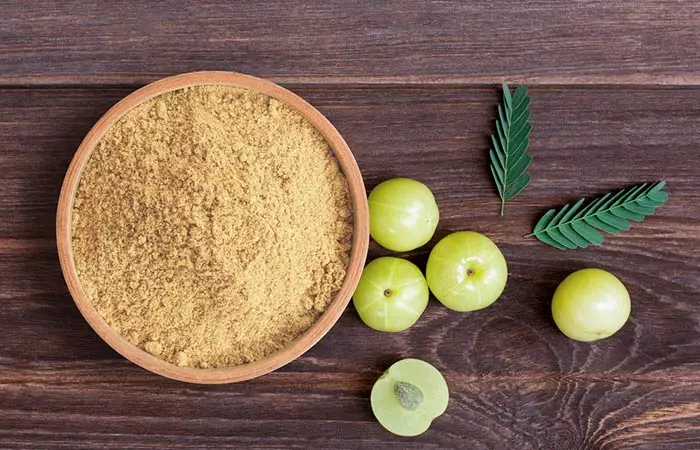
Amla or Indian gooseberry can help develop and support connective tissues (5). It can help in tissue regeneration and healing, leading to tightened teeth.
You Will Need
- 1 teaspoon amla powder
- 1 cup of water
What You Have To Do
Mix the powder with water and rinse your mouth with this mixture.
How Often You Should Do This
Do this once a day.
Note: Do not drink or eat anything for an hour following your rinsing routine.
3. Calcium And Vitamin D Supplements
Calcium and vitamin D are essential for teeth and bone health.
A deficiency of these nutrients can cause the deterioration of dental health, leading to loose and shaky teeth. Studies suggest that taking calcium and vitamin D supplements increases tooth retention (6).
You Will Need
Vitamin D and calcium supplements
What You Have To Do
Consume the dental supplements as prescribed by your physician.
How Often You Should Do This
Follow the dosage as prescribed.
4. Garlic
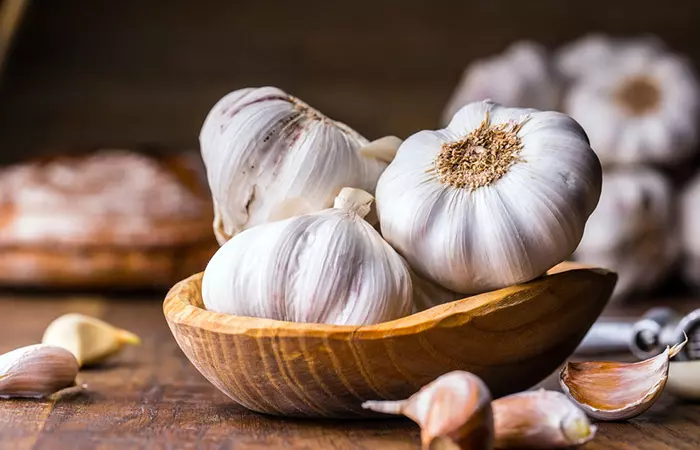
Garlic is a strong antimicrobial agent (7). If your loose tooth is caused by an infection, placing the garlic on it can help in getting rid of the harmful microbes over time.
You Will Need
A garlic clove
What You Have To Do
- Slice the garlic into thin slivers and place one or two of these in between the gum of the affected tooth and your inner cheek.
- Leave this on for as long as possible.
How Often You Should Do This
Repeat this 2-3 times a day.
5. Hydrogen Peroxide
Hydrogen peroxide thoroughly eliminates all bacteria present in and around the loose tooth
(8). These microbes are one of the most common reasons for loose teeth as a result of infection, cavity, and/or plaque.
You Will Need
3% hydrogen peroxide solution
What You Have To Do
- Take a tablespoon or so of hydrogen peroxide solution in your mouth and swish it around for a minute.
- Spit it out and rinse your mouth with plain water.
- Follow this up with your regular teeth brushing.
How Often You Should Do This
Repeat this once or twice every day.
6. Mustard Oil And Honey
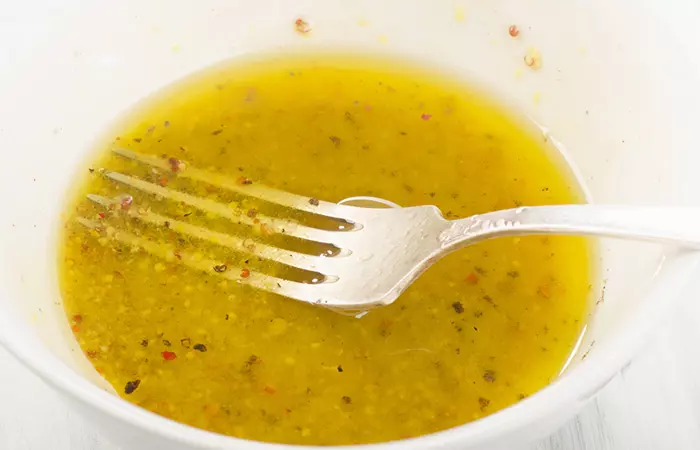
Mustard oil and honey are antibacterial agents with many potential benefits. A mixture of these natural ingredients can help strengthen gums and tighten loose teeth. This is usually used as an endodontic (related to the soft tissues in the tooth) medication owing to its antibacterial property (9).
You Will Need
- 1 teaspoon salt
- A few drops of mustard oil
What You Have To Do
- Add the oil drops to the salt and make a paste.
- Massage this gently over the affected area as well as the surrounding area for a minute or two.
- Rinse your mouth with warm water.
How Often You Should Do This
Use this oil and salt paste once every day for 2-3 days, and then use it once every few days.
7. Indian Redwood Bark Powder
The resin present in the bark of this tree has been traditionally used to treat dental diseases and infections. Studies show that the bark extracts of Indian Redwood have anti-inflammatory and antioxidant properties that can help to maintain oral hygiene(10).
You Will Need
Indian Redwood bark powder
What You Have To Do
- Take a pea-sized amount of the powder on a clean finger and give a dental massage to the affected area with it.
- Rinse your mouth clean with water.
- You can add some black walnut powder to the bark powder for added benefits.
How Often You Should Do This
Do this twice daily.
8. Turmeric And Long Pepper
The active component of turmeric, known as curcumin, has anti-inflammatory, antioxidant, and antimicrobial properties (11). Massaging the teeth with ground turmeric can reduce pain and inflammation. Indian long pepper possesses analgesici The property of an agent or drug that relieves pain caused or accompanied by a number of physical conditions. , anti-inflammatory, and antibacterial properties that can also help eliminate the pain that arises at the affected site (12).
You Will Need
- 1/2 teaspoon turmeric powder
- 1/2 teaspoon long pepper powder
What You Have To Do
- Mix the powders and massage the mixture gently on your gums.
- After you have diligently massaged your gums for about two minutes, rinse the mixture.
How Often You Should Do This
Do this daily to make your teeth and gums stronger.
Note: Ensure you don’t eat or drink for the next 30 minutes after using this powder.
 Quick Tip
Quick Tip9. Baking Soda
Baking soda may help improve oral health by acting as a mild abrasive that removes surface stains and plaque (13). Its alkaline nature may also help neutralize mouth acids, preventing tooth decay and gum disease (14).
You Will Need
- A pinch of baking soda
What You Have To Do
- Dampen your toothbrush and dip it into the baking soda.
- Gently brush your teeth and gums.
- Rinse your mouth thoroughly with water.
How Often You Should Do This
Use this method sparingly, as excessive use of baking soda may erode tooth enamel.
Apart from these remedies, it may also help to address the underlying causes of loose teeth. For instance, tartar and plaque buildup often cause gum inflammation, leading to loose teeth. Therefore, knowing how to remove tartar from teeth may help prevent further issues.
You may also try salt water gargling. Dr. Zev Schulhof, DMD, MD, says, “Salt water gargling is one of the oldest tricks in the book for strengthening loose teeth. This helps fight infections in the gums which can cause teeth to loosen. It draws out bad bacteria and gives your teeth and gums a deep clean. You can also use mouthwash, and I would specifically recommend mouthwashes designed for gum health. If loose teeth are something you frequently deal with, you may want to consider a calcium supplement, as that can help strengthen your teeth. Ultimately, however, you should see your dentist about this problem.”
It is best to check with your dentist before using any of the remedies mentioned above and follow their recommendations to improve your dental health.
We have now seen different ways on how to tighten loose teeth at home easily. Remember, these remedies are completely natural and might take a while to show results. We will now see how you can prevent the occurrence of loose teeth.
Prevention Tips
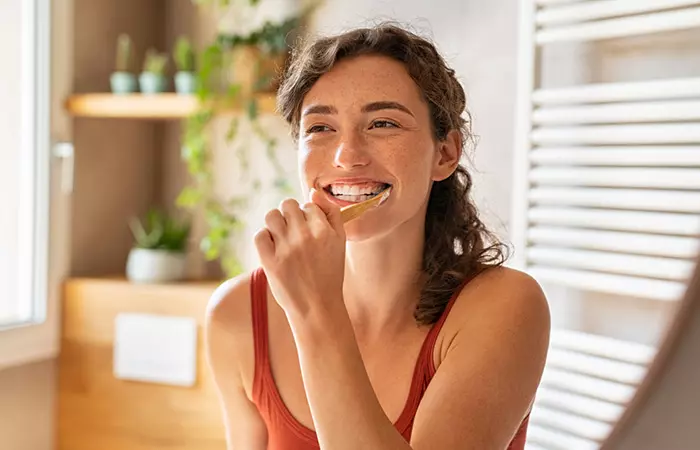
Here are a few ways by which you can prevent your teeth from becoming loose:
- Make it a habit to brush your teeth at least twice a day.
- Apart from brushing, you must floss between your teeth regularly.
- Avoid smoking and excessive consumption of alcohol.
- Make sure to consult your dentist regularly to determine if you are maintaining good oral hygiene.
- If you are into extreme sports, you must wear a mouthguard to protect your teeth.
- Consult your doctor to see if you need to take vitamin D and calcium supplements to help prevent osteoporosis.
Apart from following these tips, it is essential to know how to get rid of cavities to maintain oral hygiene and prevent dental issues.
However, before you try any home remedies, it’s always important to consult a dentist for a proper diagnosis and treatment. Dr. Jerry Friedman, Oral and Maxillofacial Surgeon, adds, “If you have loose teeth, you should visit your dentist first before assuming that home remedies will do the trick. While there are some home remedies that can help, it’s not worth the risk of potentially losing your teeth simply because you didn’t get the issue checked. In addition to getting help from your dentist, one of the best things you can do is simply clean your teeth really well, daily. Yes, this means flossing! Deep cleaning can help strengthen your teeth and prevent wiggling. I would recommend a water flosser as well.”
Infographic: 5 Home Remedies For Loose Teeth
Loose teeth are painful to deal with. Not only do they cause you discomfort, but they can act as a gateway to infections, plaque buildup, and other gum-related issues. Thankfully, there are some easy at-home remedies that can ease any discomfort and help resolve this issue.
Check out the infographic below to know about the top 5 home remedies to try if you have a loose tooth.
Some thing wrong with infographic shortcode. please verify shortcode syntaxThe home remedies for loose teeth alleviate and relieve the associated symptoms. Poor oral hygiene, gum diseases, or dental injuries may cause loose teeth. , which may, at a later stage, result in tooth extraction, dental implants, or dental bridges if not taken care of. Go for routine checkups with your dentist for dental scaling, dental bonding, and dental polishing and maintain your oral hygiene. It can be managed with remedies like oil pulling, garlic, Indian redwood bark powder, Amla powder, calcium, and vitamin D supplements. Mustard oil, honey, long pepper, and turmeric are also effective in managing loose teeth. As these remedies are natural, the results will take time. Additionally, prevention tips like brushing twice, flossingi The act of using an interdental cleaner (floss) made of nylon strands to remove food particles and plaque stuck between the teeth. , , dental veneers, dental flossingi, maintaining oral hygiene, dental rinsing, and avoiding excess consumption of alcohol and smoking help prevent loose teeth.
Frequently Asked Questions
Is there an exercise I can do to help strengthen my loose teeth?
Dr. Jennifer Silver, DDS, says, “While there’s no specific exercise solely for teeth, I recommend practices that promote good oral hygiene and gum health. One exercise you can do is gently clenching and releasing your teeth. This helps stimulate the periodontal ligaments and can promote gum strength. You can also use a soft-bristled toothbrush to massage your gums in a circular motion, which can increase blood flow and help to fortify the tissue around your teeth.”
Is it normal for teeth to be loose after using dental braces?
Braces are meant to readjust the position of your teeth and align them properly. This implies that your teeth may feel loose with braces initially, but after you have completed your course of wearing braces, your teeth will no longer feel loose.
What is a splint for your teeth?
A dental splint is used to give extra support to loosened teeth until they heal. Lesser biting pressure is experienced after splinting, thus causing no damage to the already loosened teeth.
Is losing your teeth hereditary?
Certain issues, such as receding gums, which can be a genetic condition, can lead to loose teeth more often than usual. There are other genetic factors that can make you more prone to gum diseases and cavitiesi Damaged areas in teeth that are characterized by discolored holes and openings due to poor dental hygiene. . These can also lead to loose teeth.
How long does a loose tooth take to heal?
If the dental surgery involves the use of a splint to set your loose tooth, it can take between 3-8 weeks, depending on the severity of the case.
Can a loose tooth tighten itself back up?
Yes, a loose tooth can tighten back up on its own. However, this depends on the cause and how loose the tooth is. For instance, a tooth that has become shaky due to an injury can tighten in a week or two.
Should you brush a loose tooth?
No, you should not brush a loose tooth as it may loosen even further. You can instead clean your teeth by swishing around some water or dental mouthwash inside the mouth.
Does milk help a loose tooth?
The numerous proteins found in milk can help promote oral health and make your teeth stronger (15). It may prevent the loosening of teeth and improve gum health.
What are some lifestyle changes to support dental health?
Apart from following good dental hygiene, reducing sugary foods, quitting smoking, and eating a well-balanced diet packed with vitamins and minerals may enhance oral health and lower the chance of loose teeth.
Illustration: How To Strengthen Loose Teeth: Causes And Home Remedies
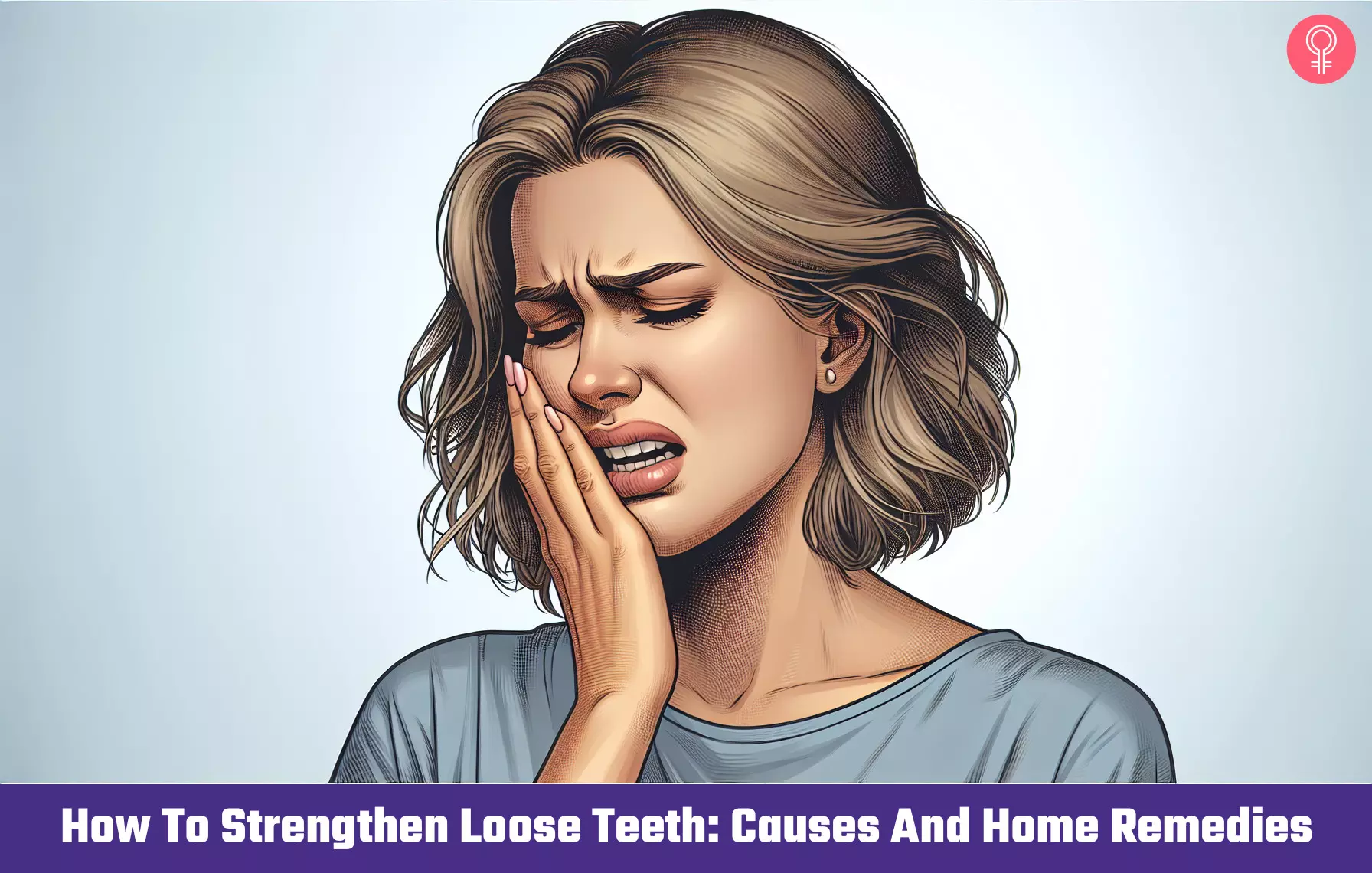
Image: Dall·E/StyleCraze Design Team
References
Articles on StyleCraze are backed by verified information from peer-reviewed and academic research papers, reputed organizations, research institutions, and medical associations to ensure accuracy and relevance. Read our editorial policy to learn more.
- Periodontal disease and systemic conditions: a bidirectional relationship, Odontology, US National Library of Medicine, National Institutes of Health.
https://www.ncbi.nlm.nih.gov/pmc/articles/PMC2443711/ - Soft drinks and dental health: A review of the current literature, Journal of Dentistry, ResearchGate.
https://www.researchgate.net/publication/7606316_Soft_drinks_and_dental_health_A_review_of_the_current_literature - Impact of Osteoporosis and Its Treatment on Oral Health, The American Journal of the Medical Sciences, ResearchGate.
https://www.researchgate.net/publication/236184877_Impact_of_Osteoporosis_and_Its_Treatment_on_Oral_Health - Oil pulling for maintaining oral hygiene – A review, Journal of Traditional and Complementary Medicine, US National Library of Medicine, National Institutes of Health.
https://www.ncbi.nlm.nih.gov/pmc/articles/PMC5198813/ - Role of Ayurveda in management of oral health, Pharmacognosy Reviews, US National Library of Medicine, National Institutes of Health.
https://www.ncbi.nlm.nih.gov/pmc/articles/PMC3931197/ - Influence of Vitamin D & Calcium Supplementation in the Management of Periodontitis, JDCR, US National Library of Medicine, National Institutes of Health.
https://www.ncbi.nlm.nih.gov/pmc/articles/PMC4525604/ - Antimicrobial properties of allicin from garlic, Microbes and Infection, US National Library of Medicine, National Institutes of Health.
https://pubmed.ncbi.nlm.nih.gov/10594976/ - Effect of hydrogen peroxide on developing plaque and gingivitis in man, Journal of Clinical Periodontology, US National Library of Medicine, National Institutes of Health.
https://pubmed.ncbi.nlm.nih.gov/379049/ - Efficacy of camphorated paramonochlorophenol to a mixture of honey and mustard oil as a root canal medicament, Journal of the College of Physicians and Surgeons, US National Library of Medicine, National Institutes of Health.
https://pubmed.ncbi.nlm.nih.gov/15456545/ - Studies on In Vitro Antioxidant, 5-Lipoxygenase Inhibitory and Anticancer Properties of Soymida febrifuga A.Juss Stem Bark Extracts, ResearchGate.
https://www.researchgate.net/publication/263655709_Studies_on_In_Vitro_Antioxidant_5-Lipoxygenase_Inhibitory_and_Anticancer_Properties_of_Soymida_febrifuga_AJuss_Stem_Bark_Extracts - Role of curcumin in systemic and oral health: An overview, Journal of Natural Science, Biology and Medicine, US National Library of Medicine, National Institutes of Health.
https://www.ncbi.nlm.nih.gov/pmc/articles/PMC3633300/ - Ethnomedicinal Plants Used by Traditional Healers to Treat Oral Health Problems in Cameroon, Evidence Based Complementary and Alternative Medicine, US National Library of Medicine, National Institutes of Health.
https://www.ncbi.nlm.nih.gov/pmc/articles/PMC4606091/ - Combined use of baking soda and electric toothbrushing for removal of artificial extrinsic stain on enamel surface: An in vitro study
https://www.ncbi.nlm.nih.gov/pmc/articles/PMC8760959/ - The efficacy of baking soda dentifrice in controlling plaque and gingivitis: A systematic review
https://www.ncbi.nlm.nih.gov/pmc/articles/PMC6850485/ - Milk helps build strong teeth and promotes oral health
https://pubmed.ncbi.nlm.nih.gov/16900979/
Read full bio of Dr. Thomas Connelly
- Dr. Jerry Friedman grew up on Staten Island, New York, and always wanted to be a doctor. He received his undergraduate degree in pre-med and Judaic studies from Touro College in New York City and his dental degree from Columbia University School of Dentistry in New York City. He then completed his General Practice Dental Residency at Beth Israel Hospital and his Oral Surgery Residency at Mount Sinai Medical Center in New York City.Dr. Friedman has professional affiliations with the International Congress of Oral Implantologists and the American Association of Oral and Maxillofacial Surgeons. He also is a Diplomate of the American Board of Oral and Maxillofacial Surgery and the American Dental Society of Anesthesiology.
 Dr. Jerry Friedman grew up on Staten Island, New York, and always wanted to be a doctor. He received his undergraduate degree in pre-med and Judaic studies from Touro College in New York City and his dental degree from Columbia University School of Dentistry in New York City. He then completed his General Practice Dental Residency at Beth Israel Hospital and his Oral Surgery Residency at Mount Sinai Medical Center in New York City.Dr. Friedman has professional affiliations with the International Congress of Oral Implantologists and the American Association of Oral and Maxillofacial Surgeons. He also is a Diplomate of the American Board of Oral and Maxillofacial Surgery and the American Dental Society of Anesthesiology.
Dr. Jerry Friedman grew up on Staten Island, New York, and always wanted to be a doctor. He received his undergraduate degree in pre-med and Judaic studies from Touro College in New York City and his dental degree from Columbia University School of Dentistry in New York City. He then completed his General Practice Dental Residency at Beth Israel Hospital and his Oral Surgery Residency at Mount Sinai Medical Center in New York City.Dr. Friedman has professional affiliations with the International Congress of Oral Implantologists and the American Association of Oral and Maxillofacial Surgeons. He also is a Diplomate of the American Board of Oral and Maxillofacial Surgery and the American Dental Society of Anesthesiology. - Dr. Zev Schulhof is the DMD, MD at the Iconic Implant Institute. He received his dental degree from the University of Medicine and Dentistry of New Jersey and attended the medical school at Mount Sinai School of Medicine where he graduated from in 2003. He then completed his six-year oral and maxillofacial surgery residency at Mount Sinai Medical Center in New York, where he was the Chief Resident from 2005 to 2006.Dr. Schulhof is a Member of the American Association of Oral & Maxillofacial Surgeons and the current President of the American Academy of Facial Cosmetics. He also holds two medical device patents and is passionate about utilizing cutting edge technology in his surgical practice. He continues to be involved in residency training while maintaining his busy private practice in Teaneck, NJ.
 Dr. Zev Schulhof is the DMD, MD at the Iconic Implant Institute. He received his dental degree from the University of Medicine and Dentistry of New Jersey and attended the medical school at Mount Sinai School of Medicine where he graduated from in 2003. He then completed his six-year oral and maxillofacial surgery residency at Mount Sinai Medical Center in New York, where he was the Chief Resident from 2005 to 2006.Dr. Schulhof is a Member of the American Association of Oral & Maxillofacial Surgeons and the current President of the American Academy of Facial Cosmetics. He also holds two medical device patents and is passionate about utilizing cutting edge technology in his surgical practice. He continues to be involved in residency training while maintaining his busy private practice in Teaneck, NJ.
Dr. Zev Schulhof is the DMD, MD at the Iconic Implant Institute. He received his dental degree from the University of Medicine and Dentistry of New Jersey and attended the medical school at Mount Sinai School of Medicine where he graduated from in 2003. He then completed his six-year oral and maxillofacial surgery residency at Mount Sinai Medical Center in New York, where he was the Chief Resident from 2005 to 2006.Dr. Schulhof is a Member of the American Association of Oral & Maxillofacial Surgeons and the current President of the American Academy of Facial Cosmetics. He also holds two medical device patents and is passionate about utilizing cutting edge technology in his surgical practice. He continues to be involved in residency training while maintaining his busy private practice in Teaneck, NJ. - Dr. Jumoke Adedoyin serves as a Chief Clinical Officer for Affordable Dentures & Implants, where she has been working since 2009. As a successful dentist, entrepreneur, and business and lifestyle coach, she leads engagement programs for the enterprise’s doctors.In 1995, her path took a turn across the Atlantic. Landing in the U.S., she earned her undergraduate degree in 1995 from Clark Atlanta University and went on to become the valedictorian of Howard University College of Dentistry's Class of 2001.She serves as a clinical mentor at The Pathways, an implant training facility in Arizona.Dr. Adedoyin is also a sought-after motivational speaker who inspires women to live a purposeful life.
 Dr. Jumoke Adedoyin serves as a Chief Clinical Officer for Affordable Dentures & Implants, where she has been working since 2009. As a successful dentist, entrepreneur, and business and lifestyle coach, she leads engagement programs for the enterprise’s doctors.In 1995, her path took a turn across the Atlantic. Landing in the U.S., she earned her undergraduate degree in 1995 from Clark Atlanta University and went on to become the valedictorian of Howard University College of Dentistry's Class of 2001.She serves as a clinical mentor at The Pathways, an implant training facility in Arizona.Dr. Adedoyin is also a sought-after motivational speaker who inspires women to live a purposeful life.
Dr. Jumoke Adedoyin serves as a Chief Clinical Officer for Affordable Dentures & Implants, where she has been working since 2009. As a successful dentist, entrepreneur, and business and lifestyle coach, she leads engagement programs for the enterprise’s doctors.In 1995, her path took a turn across the Atlantic. Landing in the U.S., she earned her undergraduate degree in 1995 from Clark Atlanta University and went on to become the valedictorian of Howard University College of Dentistry's Class of 2001.She serves as a clinical mentor at The Pathways, an implant training facility in Arizona.Dr. Adedoyin is also a sought-after motivational speaker who inspires women to live a purposeful life. - Jennifer Silver is a qualified Doctor of Dental Surgery and has graduated from the University of Melbourne, Australia. In her 15 years as a Dentist, Jennifer has treated patients from various ages and economic backgrounds. She has always made the needs of her patients a priority, and finds her purpose in meeting new challenges.
 Jennifer Silver is a qualified Doctor of Dental Surgery and has graduated from the University of Melbourne, Australia. In her 15 years as a Dentist, Jennifer has treated patients from various ages and economic backgrounds. She has always made the needs of her patients a priority, and finds her purpose in meeting new challenges.
Jennifer Silver is a qualified Doctor of Dental Surgery and has graduated from the University of Melbourne, Australia. In her 15 years as a Dentist, Jennifer has treated patients from various ages and economic backgrounds. She has always made the needs of her patients a priority, and finds her purpose in meeting new challenges.
Read full bio of Shaheen Naser
Read full bio of Arshiya Syeda
Read full bio of Dipti Sharma






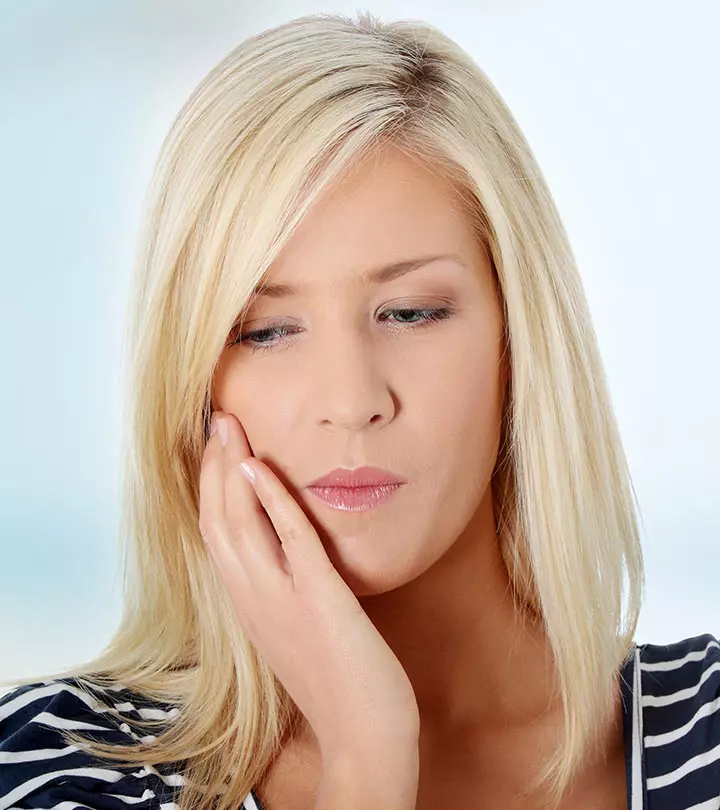
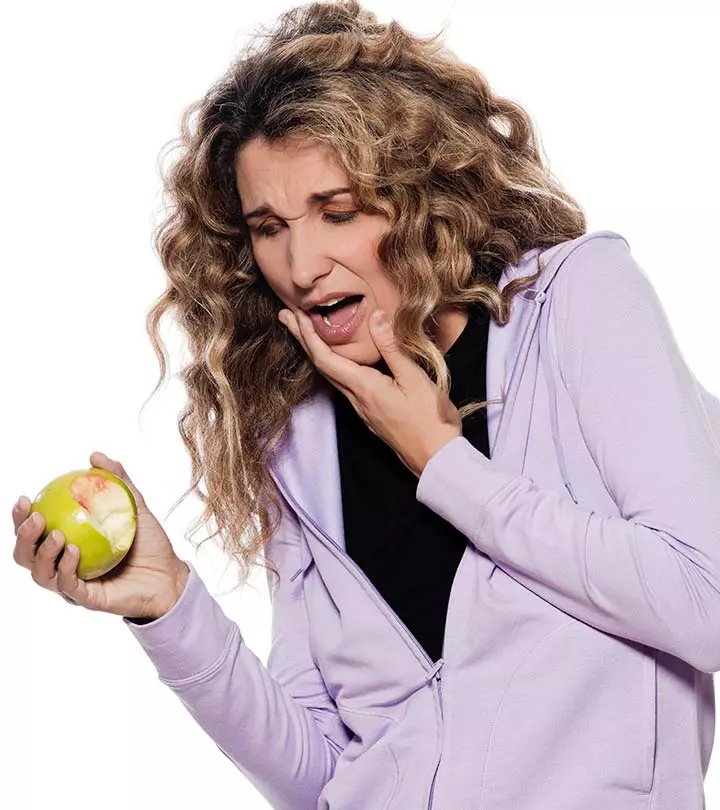

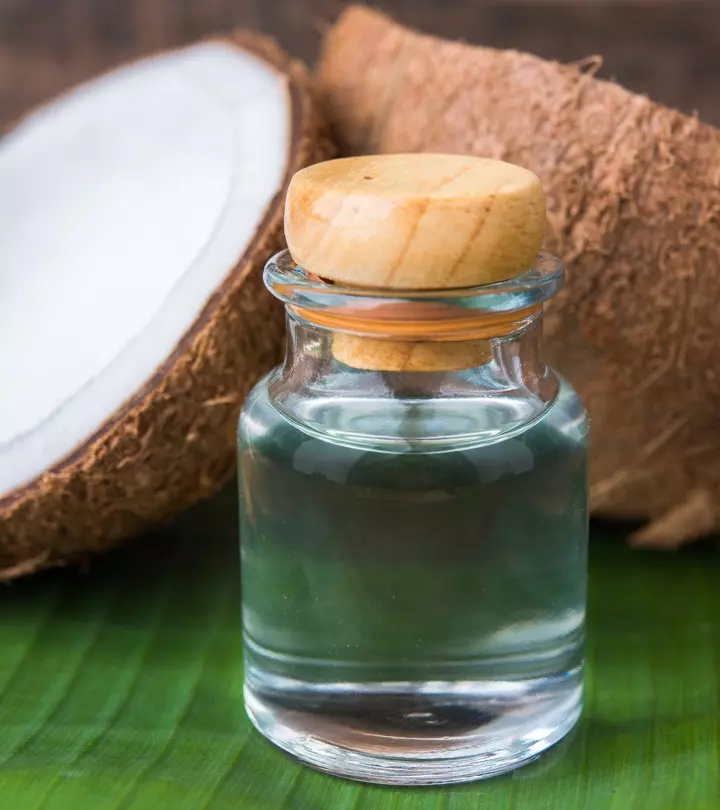
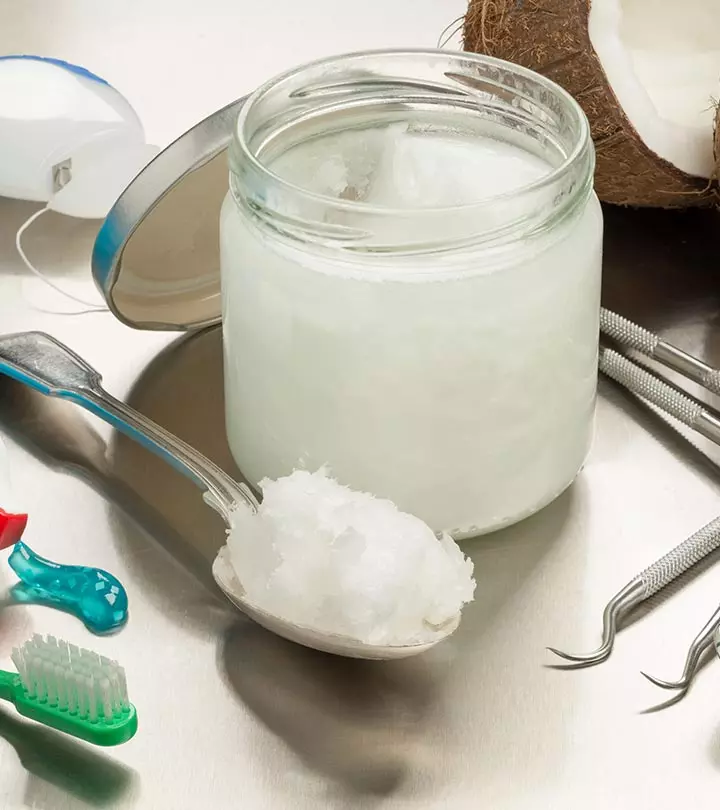
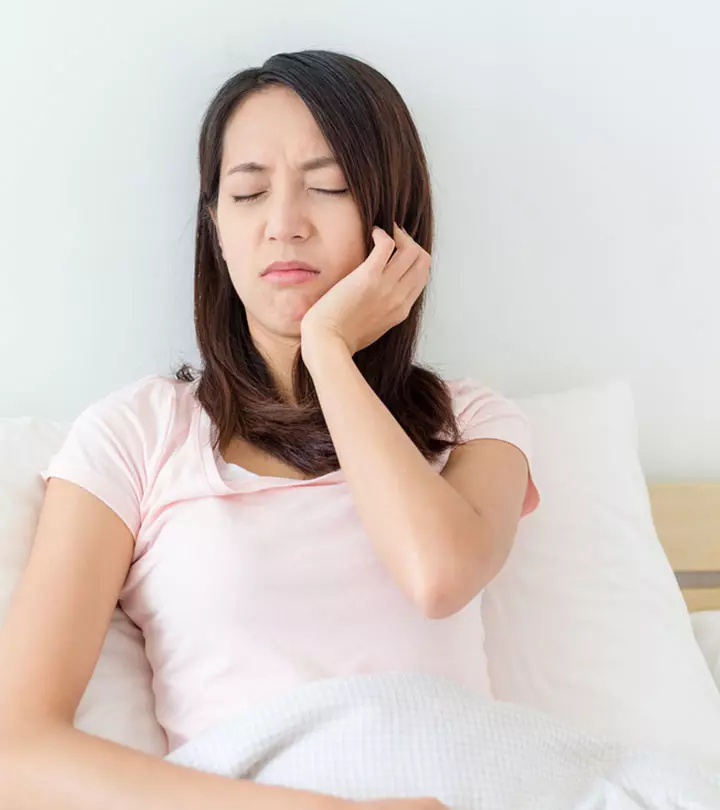



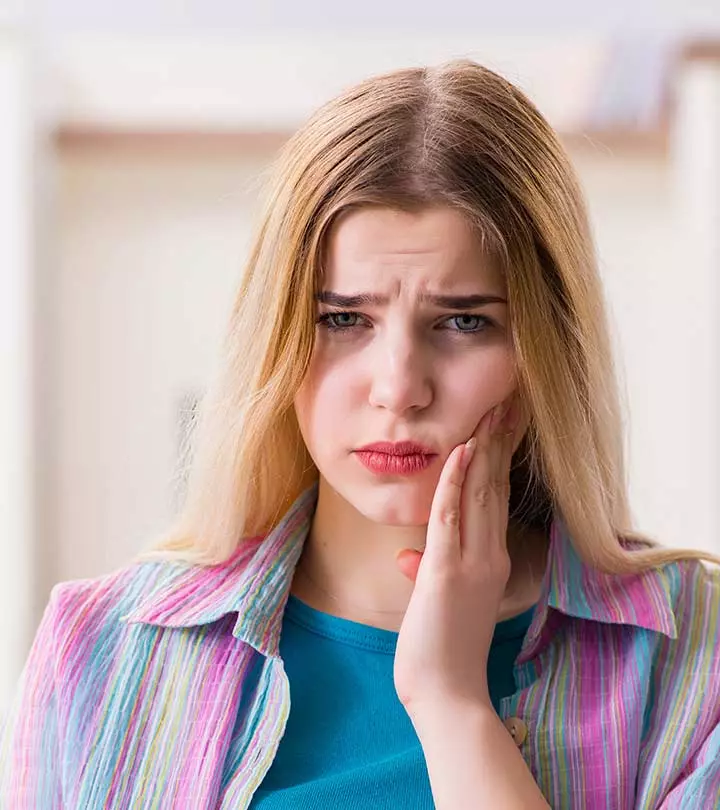

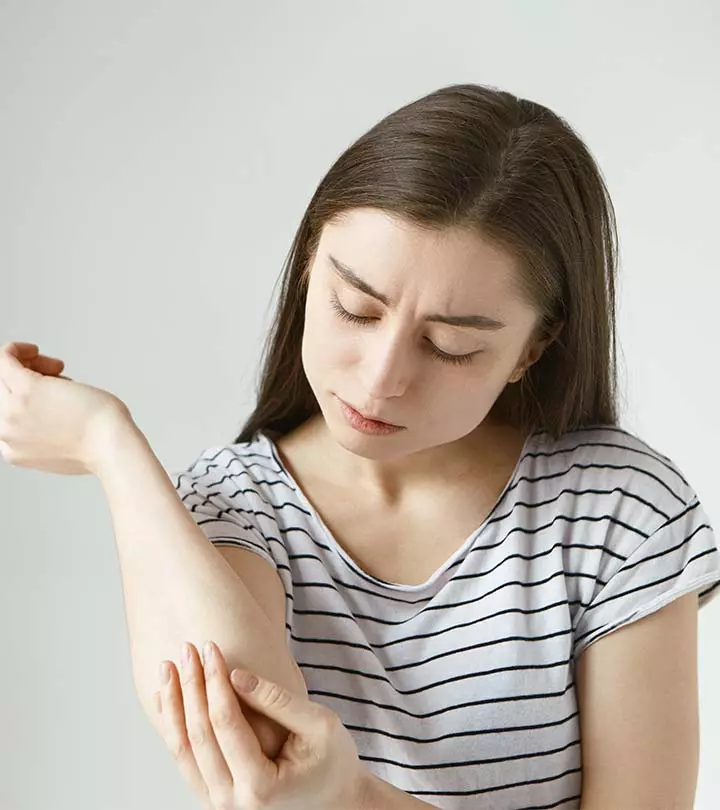

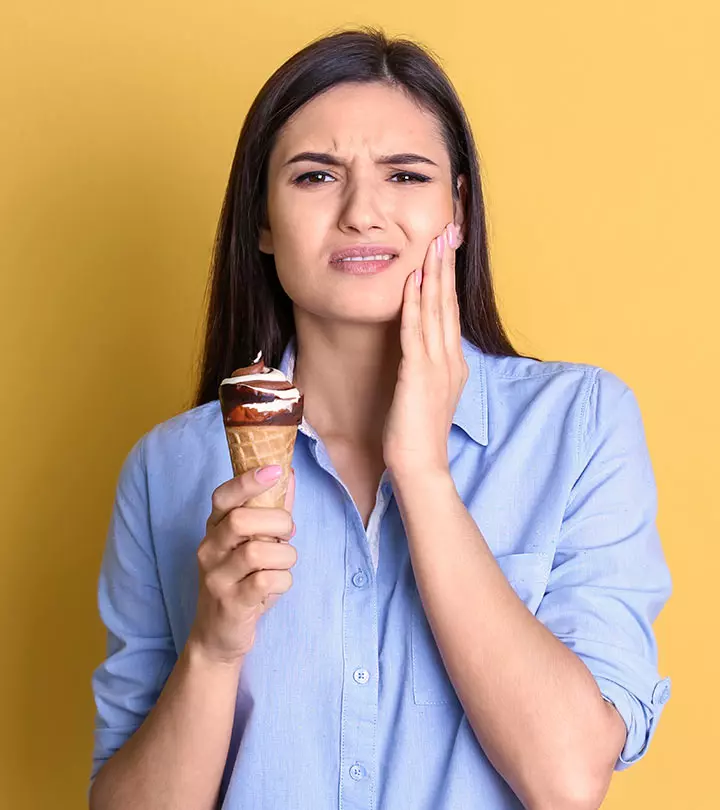
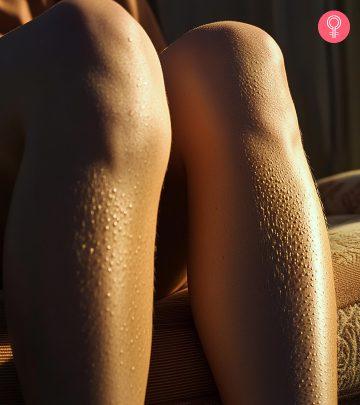
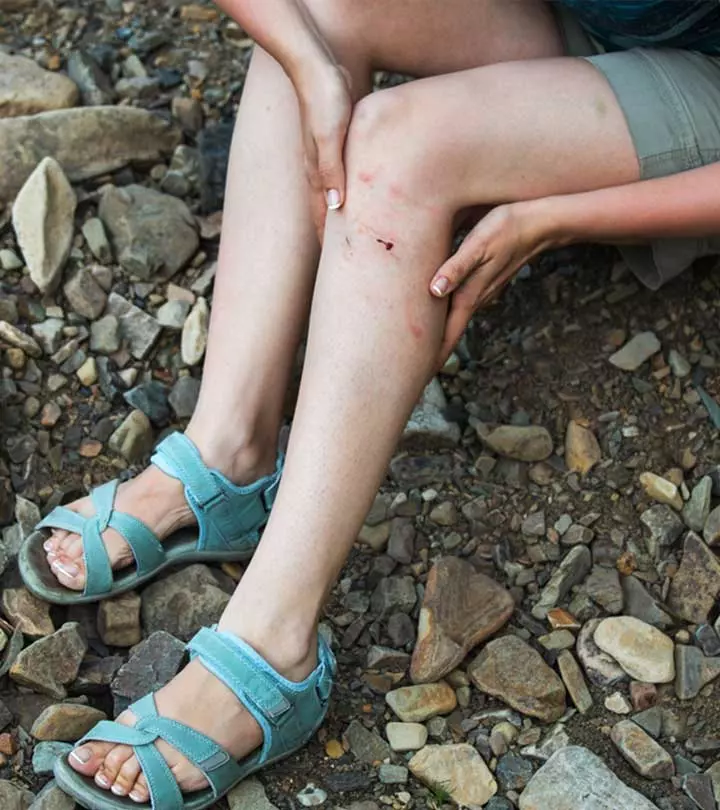




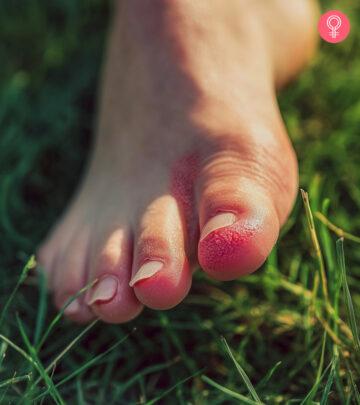
Community Experiences
Join the conversation and become a part of our empowering community! Share your stories, experiences, and insights to connect with other beauty, lifestyle, and health enthusiasts.